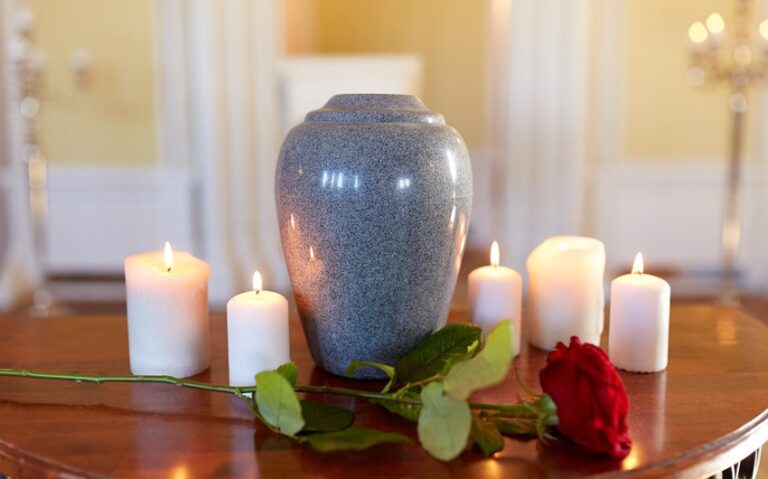Why Moving to an Apartment Can Be a Fresh Start for Your Finances and Your Mind
Moving to an apartment often starts as a practical decision; sometimes, rent may be lower than your mortgage, and you may want less maintenance. Whatever your reason, the move represents more than relocation; it signals a reset, and now you are ready to simplify your life.
Many people stay in large homes that drain their money and attention. They hold on to things they no longer use, and over time, this creates clutter, stress, and financial strain. A smaller space forces clarity. It makes you ask hard questions about what you need and what you value.
Moving to an apartment is a financial and mental audit; you have to confront your habits, your possessions, and your priorities. The process strips away excess, and eventually, what remains is control.
The Mental Reset: Simplifying Your Surroundings
Your environment shapes how you think and feel, so when your space is cluttered, your mind follows. A smaller apartment limits how much you own, and that can sound restrictive, but it is freeing. You should keep what serves a purpose.
Psychologists have found a direct link between clutter and stress. A study from UCLA’s Center on Everyday Lives of Families found that people with cluttered homes had higher cortisol levels. Less space forces organization, and it pushes you to live with intention.
A tidy apartment removes daily friction, cleaning takes minutes, and you know where everything is. The goal is for your home to become a calm base, not a burden, enabling you to think clearly and make faster decisions.
Living smaller also makes you more mobile. You can relocate for a better job, school, or lifestyle without the weight of too many possessions. You feel lighter because you are lighter.
The Financial Reset: Building a Smarter Lifestyle
A smaller home often means smaller bills, and apartments usually cost less in rent or mortgage. You spend less on utilities, maintenance, and repairs. The average apartment in the United States uses about 30 percent less energy than a detached house, according to the U.S. Energy Information Administration.
Downsizing also cuts hidden costs such as property taxes, and Insurance premiums go down. You buy fewer things because there is less space to fill, and over time, these choices add up.
Imagine you reduce your monthly living expenses by $800 over a year, which equals $9,600. If you invest that money at a modest 5 percent annual return, in ten years you will have more than $120,000. The shift from spending to saving transforms your future.
An apartment also limits lifestyle inflation, so you stop buying for space and start buying for need. You might still treat yourself, but each purchase becomes intentional, you spend where it matters.
Financial freedom is not about income, it is about structure. Smaller spaces create natural limits that protect your money and time.
Moving Strategies: Making the Transition Smooth and Purposeful
The moving process itself matters, and with no structure, you replace one form of stress with another.
Start by setting a clear goal, and write down why you are moving. It could be to save money or to live closer to work. Keep that goal visible so it will guide every decision.
Declutter before you pack. It’s wise to sort your things into three categories: keep, sell, donate. If you have not used something in a year, it is time to let it go. Sell valuable items online or through a local marketplace and donate what remains. You will reduce moving costs and feel lighter.
Budget your move carefully. Include security deposits, truck rental, packing materials, and utility setup. These costs add up fast, and a clear budget prevents surprises. If you are relocating across the country, hire reliable long-distance movers who manage logistics efficiently and treat your belongings with care. The right team saves you time, stress, and money by keeping everything organized and on schedule.
Once you move in, plan your layout. Choose furniture that fits the space and avoid large items that make rooms feel cramped. Multi-purpose pieces, like storage beds or folding tables, keep your apartment neat and functional.
Give yourself some time, moving changes your rhythm. Focus on small routines that make the new place feel familiar. Explore your area, find a favorite café, and meet your neighbors. Each action helps your new apartment feel more like home.
A smooth transition comes from preparation and follow-through. Each step strengthens your confidence in the decision to start fresh.
The Long-Term Payoff: Freedom, Clarity, and Growth
When the dust settles, you notice the changes, and you start to sleep better, your space feels calm, your bank account grows, and most importantly, you have options.
A smaller living space often creates new mobility. You can accept a remote job or travel without worrying about upkeep. You can redirect money toward investments, education, or personal growth.
People who downsize report feeling less attached to material things. They find satisfaction in experiences and time, not in square footage. This mindset shift carries into other parts of life. You spend smarter, think clearer, and live simpler.
The long-term impact of moving to an apartment is stability. Your financial structure supports your goals. Your mental space supports your focus. Together, they build resilience.
Your New Chapter Starts at the Door
Every move changes something inside you. The act of leaving behind excess is a statement. It says you are choosing intention over habit.
An apartment offers structure and simplicity. It demands less and gives more in return. Less debt, less clutter, less noise. More freedom, more clarity, more time.
If your current space feels heavy, take it as a signal. Your next step might not be bigger. It might be smaller, smarter, and stronger.







